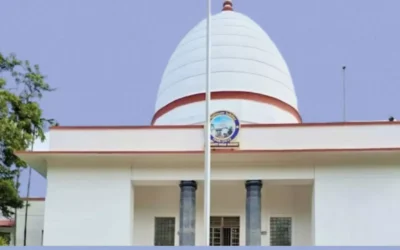BNS Section 27: Act done in good faith for benefit of child or person of unsound mind, by, or by consent of guardian.
Nothing which is done in good faith for the benefit of a person under twelve years of age, or person of unsound mind, by, or by consent, either express or implied, of the guardian or other person having lawful charge of that person, is an offence by reason of any harm which it may cause, or be intended by the doer to cause or be known by the doer to be likely to cause to that person:
Provided that this exception shall not extend to—
(a) the intentional causing of death, or to the attempting to cause death;
(b) the doing of anything which the person doing it knows to be likely to cause death, for any purpose other than the preventing of death or grievous hurt, or the curing of any grievous disease or infirmity;
(c) the voluntary causing of grievous hurt, or to the attempting to cause grievous hurt, unless it be for the purpose of preventing death or grievous hurt, or the curing of any grievous disease or infirmity;
(d) the abetment of any offence, to the committing of which offence it would not extend.
Illustration.
A, in good faith, for his child’s benefit without his child’s consent, has his child cut for the stone by a surgeon knowing it to be likely that the operation will cause the child’s death, but not intending to cause the child’s death. A is within the exception, in as much as his object was the cure of the child.
Key Points on BNS-27 (Act Done in Good Faith for the Benefit of a Minor or Person with Mental Illness)
BNS-27 covers situations where actions taken for the benefit of minors (under 12 years old) or individuals with mental illness are not considered crimes, as long as those actions are carried out in good faith and with the consent of the guardian or person responsible for their care.
1. Good Faith for Benefit
- The action must be done in good faith—meaning the person performing the act must have honest, sincere intentions and must be acting for the benefit of the child or person with mental illness.
2. Consent by Guardian
- The guardian (or person lawfully responsible for the minor or individual with mental illness) must consent to the action, whether that consent is express (given clearly) or implied (suggested through the guardian’s behavior). This gives legal authority to guardians to make decisions on behalf of those under their care.
3. Harm with Consent
- Even if the action causes harm, it is not considered an offense as long as it is done with the consent of the guardian and is for the benefit of the minor or mentally ill person. For example, a necessary medical procedure may cause harm, but if it is intended to help the individual, it is protected by this provision.
4. Exceptions to the Rule (Proviso)
- There are exceptions where this protection does not apply:
- Intentional causing of death or attempting to cause death.
- Causing harm likely to result in death, unless the purpose is to prevent death or cure a serious disease or injury.
- Voluntary causing grievous hurt (serious injury), unless the action is done to prevent death or to cure a serious condition.
- Abetting (encouraging or assisting) any offense that wouldn’t be justified under this section.
5. Purpose of the Provision
- BNS-27 is designed to protect caretakers—whether parents, doctors, or guardians—who are acting in the best interest of a minor or person with mental illness. It ensures that these people can make decisions, even if there’s some risk of harm, as long as the action is intended to benefit the individual and is carried out in good faith.
6. Limitations
- The protection provided under this section does not cover malicious actions or situations where the harm caused is unjustifiable, especially if death or serious injury is involved. The law allows some level of harm in life-saving or medical situations, but not in harmful or dangerous situations without a valid purpose.
Example:
A doctor may perform a surgery on a child under the age of 12 with the consent of the parents or guardians, even if the surgery carries risks. The doctor is protected by this provision because the surgery is done with the intent to benefit the child, and it is carried out in good faith.
Conclusion:
BNS-27 provides legal protection for actions taken in the best interest of minors and individuals with mental illness, as long as they are done in good faith and with the proper guardian consent. It ensures caretakers can act for the benefit of those under their care, but there are clear limits—such as no protection for actions that intentionally cause death or serious injury.


